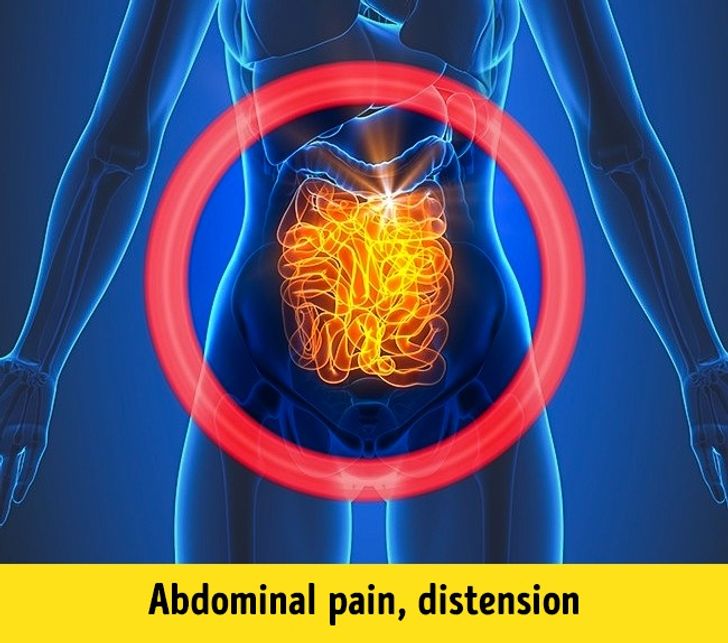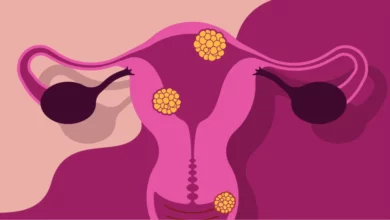- Swollen face and eyelids, swelling of the legs (less often);
- Increased sensitivity to cold;
- Pain, discomfort in the muscles and joints;
- Gravelly voice;
- Dry skin, thin hair, or hair loss.
This condition can be fixed by the intake of synthetic hormones.
Source: Mayo Clinic
Intestinal diseases

Other symptoms:
- Excessive gas, abdominal pain;
- An unpleasant aftertaste in the mouth;
- White coating on the tongue;
- Nausea.
The treatment depends on which disease (it can be dysbacteriosis, irritable bowel syndrome) has violated the intestine’s normal functionality.
Source: NCBI
Adrenal fatigue

Other symptoms:
- Low blood pressure;
- Body aches;
- Inexplicable weight loss;
- Hair loss, skin darkening.
Adrenaline bursts cannot be excluded from real life. Yet there are things that help you cope with stressful situations better: sound sleep, a balanced diet, walking outdoors, sports.
Source: Mayo Clinic
Liver diseases

Other symptoms:
- Pain under the ribs on the right side;
- Yellowish skin;
- Slight fever;
- Nausea, poor appetite.
In this case, special drugs (and in some cases even surgery) are obligatory.
Source: NCBI
Chronic dehydration

Other symptoms:
- A constant desire to eat something sweet;
- Difficulties falling asleep, superficial sleep;
- Dizziness, headaches;
- Dry mouth, unpleasant odor.
To test your body for dehydration, pinch the skin on the outer side of your wrist with two fingers, pull it half a centimeter, and then release. The skin should completely smooth and return to its original state in 1-2 seconds.
You can get rid of chronic dehydration by increasing the amount of consumed liquid (from 1.5 to 2.5 liters (50 to 67 fl.oz), depending on your weight).
Source: ehealthstar
If constant fatigue and other symptoms don’t disappear after several weeks, don’t waste your time – consult a doctor because the success of any treatment depends on how early it was started.




